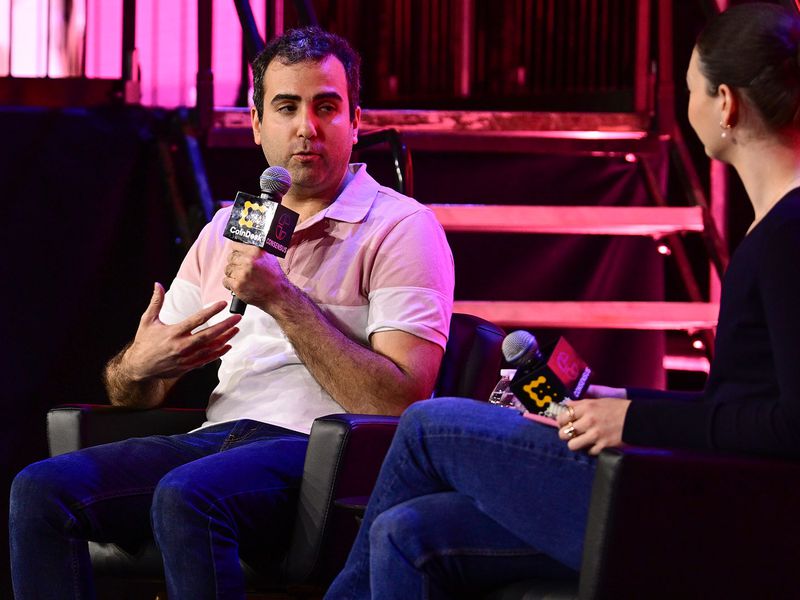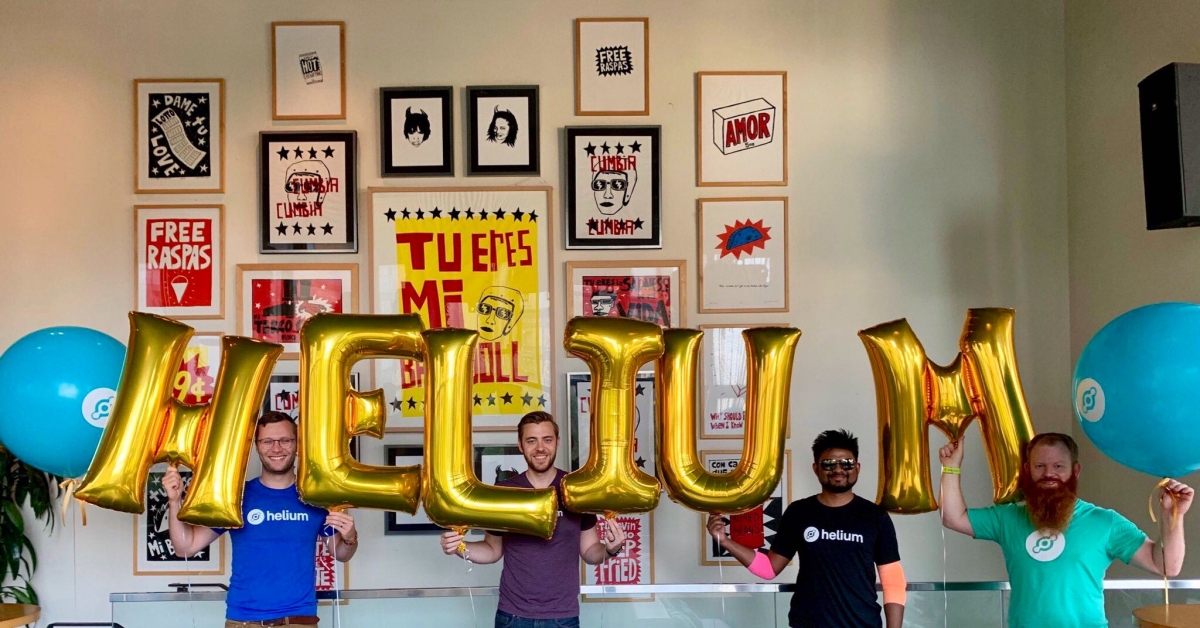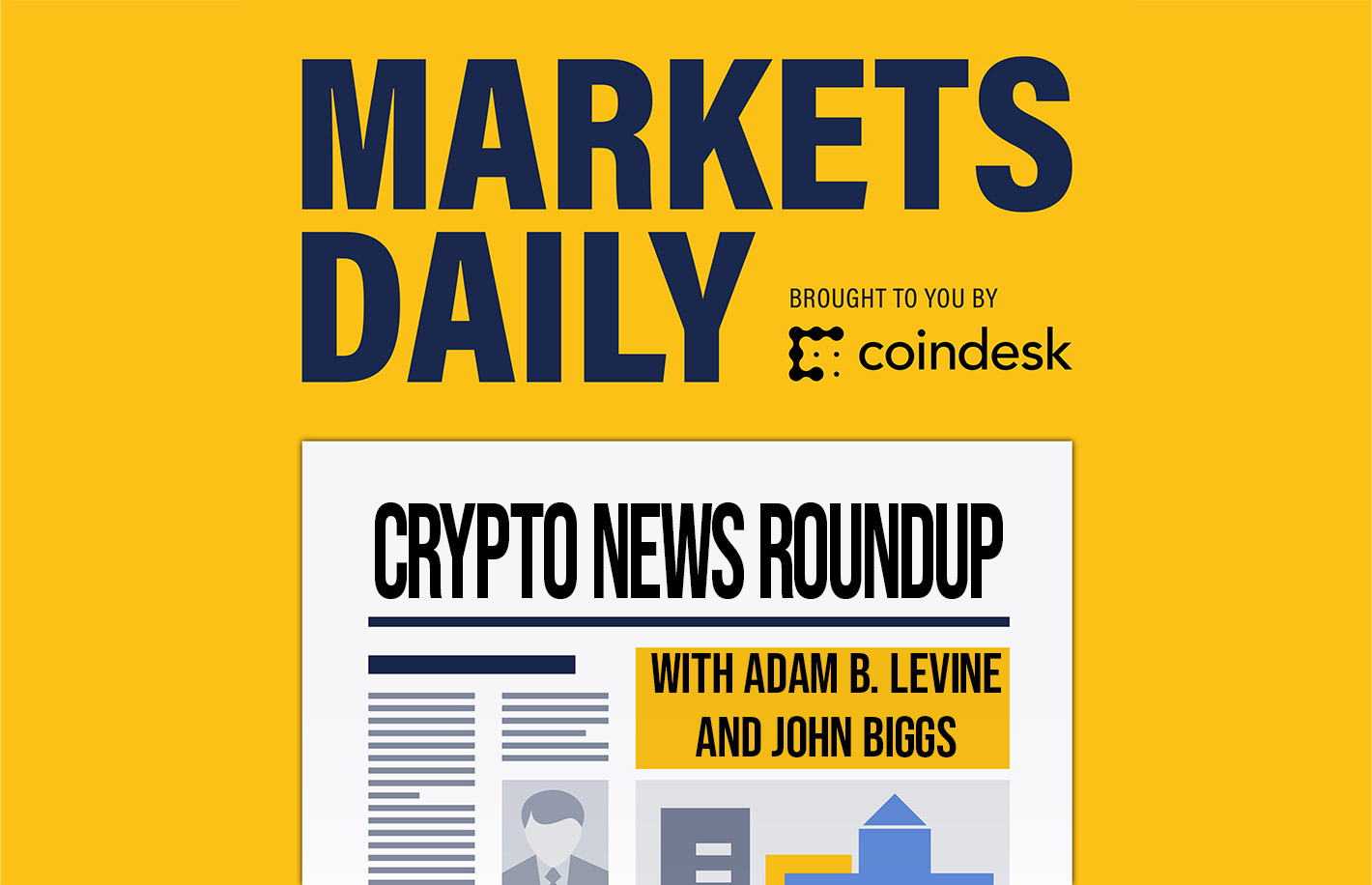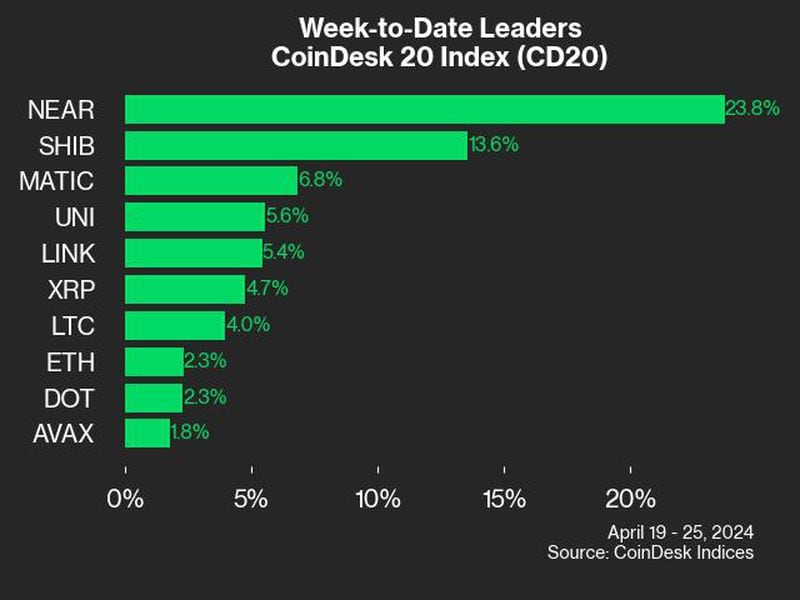Cory Doctorow: The Monopoly Web Is Already Here
Cory Doctorow: The Monopoly Web Is Already Here
Cory Doctorow doesn’t buy the hype.
While many critics of Big Tech ascribe diabolical genius to the dominant internet firms of today, Doctorow sees a collection of mediocre sociopaths.
This article is part of CoinDesk’s “Internet 2030” series, an examination at the technologies developed today that will power the economy of tomorrow.
The polymorphous Canadian-British tech blogger, science fiction writer and co-editor of the blog Boing Boing is out with a new book called “How to Destroy Surveillance Capitalism.” Therein, he pushes back on the premise offered by Shoshana Zuboff’s influential tome “The Age of Surveillance Capitalism,” and argues that today’s tech monopolies are not inevitable, invincible or impervious to change.
Doctorow doesn’t think the web of 2030 will necessarily be as monopolized as it is today. When we spoke in September, he continually brought our conversation back to the present. As a science fiction author, he is distinguishes the way things happen in stories from the way things happen in the world. But science fiction, to him, is reflected in our reality. And none of it is far-fetched – it’s already happening today.
We talked about how monopolies came to dominate today’s economy, why he disagrees with the orthodoxy of tech criticism, and why Disney’s live action remake of Mulan costs $30 to stream.
It was a hot summer day, weeks before wildfires began to ravage the western U.S. Doctorow sat outside his house in Burbank, California, above a high-speed fiber optic loop that his tax dollars had subsidized to serve the major movie studios in the area. He did not have access to it, though, all because Burbank, California has an exclusive contract with internet provider Spectrum, whose CEO is one of the highest paid in America.
Early in “How to Destroy Surveillance Capitalism,” Doctorow asks a loaded question:
“What if the trauma of living through real conspiracies all around us – conspiracies among wealthy people, their lobbyists, and lawmakers to bury inconvenient facts and evidence of wrongdoing (these conspiracies are commonly known as “corruption”) – is making people vulnerable to conspiracy theories?”
This question is one way into examining the harm he thinks monopolies are causing today, and the distrust they breed in institutions, rather than conceiving of tech firms easily being able to manipulate us into believing falsehoods.
The monopoly web is already here, even if we don’t see it yet, it seems.
The following conversation has been edited for length and clarity.
You recently published “How to Destroy Surveillance Capitalism.” For those that haven’t read it, how would you lay out your arguments?
There is an incompatible account of what’s going on with the concentration of power on the internet. My book is a challenge to the kind of orthodoxy of surveillance capitalism that Big Tech uses data to manipulate us, and it’s so successful that we just don’t even try to find competitors for them. There is this idea that the data forms this competitive wall that makes challenging them impossible.
That traditional theory is a powerful one because it explains a lot of stuff. If Big Tech is really good at manipulating us, then maybe that’s why people believe all kinds of crazy things. Maybe the reason flat-earthers and birtherism and all the other kinds of conspiratorial modes are on the rise is that this ‘big tech convincing machine’ has convinced people of crazy stuff. My shorthand for this idea is that Facebook and Google built some mind-control way to sell you a fidget spinner, and then Cambridge Analytical stole it and made your uncle a racist.
I think that this gives the tech companies too much credit.
So now we’re getting into the difference between that orthodoxy and what I believe. I think that critics of big tech are absolutely right when they say they’re really untrustworthy, they lie all the time, they lie about when they’re spying on you, they lie about what they do with the data and so on. The problem is that they don’t go far enough.
My belief is that the companies are just old-fashioned monopolies. Their growth is not because of the magical properties of data or network effects or whatever. It’s just because they bought all their competitors. Which is a thing that used to be illegal and is now legal. They created vertical monopolies, and they did all kinds of scummy things, but the reason that people believe outlandish things is because we had a collapse of trust in our institutions.
The reason we have a collapse of trust in our institutions is because we’re living in an age of monopolies in which all of our institutions have become really corrupt and they cease to become a reliable source of information about what’s true and what isn’t true. Sure, sometimes they’re reliable.But when the Center for Disease Control (CDC) wakes up one morning and says, ‘Oh, by the way, nobody should get tested for coronavirus because the Trump administration says so,’ you question these institutions. I don’t know how to evaluate whether I should or shouldn’t get a test, I’m not an epidemiologist, so I have to rely on the CDC. And I can’t.
So I just end up trying to find someone who sounds like they know what they’re talking about and trusting that. That, I think, is the source of this conspiratorial belief, and the thing that supercharges the trauma of what happens when regulators are not acting as honest brokers.
When the FDA says, ‘Sacklers, go ahead and sell all the oxys you want; we believe your terrible science that they’re safe’ and 200,000 Americans die in the ensuing opioid epidemic, not only are people like, ‘Wow, our regulators are really bad at their job,’ but also the fact that they’re really bad at their job is why I don’t have a father anymore. Now you’re really looking for answers.
The intersection of trauma and corruption creates conspiratorial thinking. Tech companies are endless founts of both, but not because they’re able to control us, but just because they are absolutely mediocre sociopaths who do exactly the same thing that robber barons used to do, that Vince McMahon did to shrink wrestling from 30 leagues to one league, and Luxottica did in buying all of the eyewear brands, and Disney and Fox did last year when they merged – consolidate into monopolies. They’re just completely normal sociopaths, doing absolutely banal and easy-to-understand crimes.
When we treat them like super geniuses who have invented incredible machines, we end up with these weird prescriptions. And this is the other place I break with this orthodoxy, because the main orthodoxy that you see in books like Shoshana Zuboff’s surveillance capitalism book is that once the mind-control ray of Big Tech exists, none of this stuff we used to do about monopolies works anymore.
Is that why Disney’s live-action Mulan costs $30 to stream on its platform?
You’re actually getting into a subject that I deal with in an upcoming essay. The term that we used to use before the term ‘intellectual property’ was ‘authors’ monopoly, and when people who are copyright reformers use the term ‘authors’ monopoly’ people who are actual authors get really pissed off, because they’re like, ‘I don’t have a monopoly. I don’t get to set prices. I don’t have negotiating leverage. I’m at the shitty end of the supply chain and I get squeezed and squeezed and squeezed. Tell me again about how I’m a monopolist.’
When entertainment conglomerates amass a ton of these authors monopoly they have an actual monopoly. They have the market power monopoly, the traditional monopoly, in the same way there are only three movie studios left. Then they’d also have these regulatory monopolies, a monopoly over these copyrights and patents, where they’d get the best of both worlds. Because if you are a regular old market power monopolist, and I try to do something to compete with you, and you stomp on me, I can sometimes sue you or maybe get the DOJ to stir up a criminal complaint against you. But if you have a market power monopoly, that is made up of this basket of authors’ monopolies, where anytime someone tries to do something that is pro-competitive, (like offering a cheaper way to stream Mulan) then the monopolist gets to sue me.
So spinning this dynamic out 10 years to 2030. You’ve spoken about the resistance that such monopolies would invoke amongst people generally. What might that look like since the route we seem to be on right now is monopolies having more power?
As with a lot of big social problems, the bad news is also the good news. So the bad news is that there are monopolies in every sector. It’s not just that there’s a tech monopoly or an entertainment monopoly. There’s a finance monopoly and there’s a poultry monopoly and there’s a pork monopoly and there’s a grocery monopoly. There’s a soda, monopoly, beer monopoly and a whiskey monopoly. We have these super concentrated markets in every domain. To say nothing of telecoms, when everyone now totally depends on their internet access, for health, education, romance, family, employment, civics and politics. We’re all just starting to really notice just how terrible the phone and cable monopoles are. That’s the bad news.
Because it’s everywhere and the monopolists are super powerful. When you actually look at their market cap tables, in a lot of industries, all of the companies have common owners. Warren Buffett, for example, owns a big chunk of all of the airlines. There’s lots of economic data that shows that when firms have common owners, when the same money manager is controlling a really sizable chunk of shares in every company in a sector, those companies start to become less competitive. No one knows what the mechanism is. No one knows if Buffet saying ‘hey Delta, United’s got a flight from Chicago to Kalamazoo run, why do you need one,’ or if it’s something subtler than that. We do know that less competition is a reliable outcome.
So you have these monopolies, not just within sectors but within capital, and then cross sectoral monopolies. The same investors that own big stakes in all the major airlines also own big stakes and all the major hotels. Recall that Marriott and Starwood merged last year or the year before. So we’ve got this super concentrated hotel sector. That super concentrated hotel sector has the same major investors as a super concentrated auto rental sector and a super concentrated aviation sector. You have this unbelievable market power in the hands of just a very small number of people. That’s the bad news.
The good news is that it means that everybody in every walk of life, doing every kind of endeavor is suffering at the hands of monopolies. Though they don’t know it yet, they all have the same cause. There are university professors and students who are pissed off that they’re having to assign a different Pearson textbook every year and that textbooks are up 10,000%, over 10 years and there’s only three companies producing university textbooks. They don’t really know it, but they are angry about the same thing that Frontier internet customers are pissed off about. Frontier just went bankrupt. From their filings, we learned that one of the major assets they actually booked as a line item and their balance sheet was 1 million households that had no choice but to buy internet from them. They value that as an asset and the way they calculate the value of the asset is how badly they could gouge them and how poor their service could be before they would just say I guess I don’t need the internet anymore.
I live in Burbank, California where we raised a bond and built a 100 gigabit fiber loop that connects all the major movie studios. We have Warner, Universal and Disney here. I’ve used that fiber loop because I used to contract for Disney. It’s an amazing fiber loop and it passes underneath my house’s foundation slab.
Through the city, though, we have an exclusive deal with Spectrum and they will not allow the city to use the fiber optic cable under my house, paid for with a bond that my city raised and my taxes are servicing the interest on. I can’t access that fiber. I have to pay monopoly rents to Spectrum.
Spectrum’s CEO was the fourth-highest paid CEO in America last year. They provided no PPE or hazard pay for their technicians in the first few months of the pandemic. Instead they gave them, by way of a thank you gift, coupons for restaurants that weren’t open and may not survive. They were sending technicians into our houses. So they weren’t just killing their own technicians. They were killing their customers too.
We have the same fight as people who are pissed off that they want to be part of the conversation on Facebook, but every time they try they’re hounded by Nazis. We have this mass movement in potentia, of hundreds of millions of people who are all angry about the same thing, but they just don’t know it yet.
What we think is that we have 1,000 causes. What we actually have is a movement with 1,000 ways to get involved. When that moment happens, it’s going to be seismic.
So what do you want to see? Borrowing from your book, how do we get out from under the boot of tech monopolies?
As a novelist, I am capable of distinguishing the way things happen in stories from the way things happen in the world. Anyone who tells you they have a plan that gets you from A to Z is kidding themselves or kidding you. Instead, I think the best that we can hope for is some rules of thumb, some heuristics for a program for change.
I think about this like I think about parallel parking, which is a chore that I’m incredibly bad at. My version of parallel parking is I torque the wheel all the way over and get like a quarter of an inch of space. And then I turn it all the way back and get another quarter of an inch. I get closer and closer to the curb and I inch my way in because I’m not capable of finding my way across four lanes of traffic to get into a spot. I’ve got to go iteratively. You can think about there being four directions that we can try and find some slack in to advance a pro-competition program.
So there’s markets and starting businesses that challenge monopolies and create commercial stakeholders for pro-pluralistic, anti-monopoly policies. Those stakeholders are both the employees and owners of those companies and the customers who love their services. So that’s that’s one thing: markets.
The next thing is the laws. Better enforcement of existing laws, the passage of new laws, the creation of new regulations and so on is the second thing. Things that are illegal are hard to have markets for. That’s why the markets for illegal things are super dysfunctional, and why the illegal drug market is full of all kinds of weird things and doesn’t act like you expect a traditional market to act. The more legal reform we get the more markets we can have.
Then there’s then there’s code, there’s technology. Challenging tech monopolies involves doing things, not just, like, founding alternatives to Mastodon or Diaspora, but also creating these bridges that connect the monopoly platforms with new market entrants.
The fourth piece of this is norms. So right now, people’s imaginations are so constrained. You see this, for example, in the fight over the copyright directive in the EU last year, which mandated that all platforms would have to install copyright filters, similar to the ones that Google uses for content ID. The idea was that if you could shift a couple of points from Big Tech’s balance sheet to Big Content’s balance sheet, that Big Content would drop a few crumbs on the table of actual performers and creators. I’m 100% here for the performers and the creators but the idea that all you can hope for is a slightly more benevolent dictator, shows you just how constrained our imagination is.
What if instead we said, ‘Hey, let’s have a competitive landscape, where they actually do have to bargain with us. Well, let’s have blanket licenses where the money goes to us and not to the labels. So companies that do tech, big and small, can offer access to this to music but we get paid directly when it happens because it’s a statutory regime. It’s a new law. So you have a new norm that makes a new law. ‘
That law says, irrespective of what my contract says with my label, half the money for this music license just goes directly to me. This is like lunch money that bullies can’t take away. So norms allow lawmakers to make laws because lawmakers are leery of doing things that will enrage voters. They don’t necessarily do what voters want but they don’t want to erase voters.
And laws that are positive to a kind of pluralistic business landscape lead to the creation of more firms, so they change our markets. Those markets create new stakeholders which reinforce the norms, and that also encourages people to write more code and gives you more technology and more things that are technologically possible.
So between the code, the law, the norms and the markets, we can turn the wheel all the way in one direction and get a quarter of an inch, and turn it all the way in one of those other directions and get another quarter of an inch. We can inch our way in and have these self-reinforcing loops, where the part that you know how to do, which is set norms writing for a magazine or a newspaper, emboldens a technologist which creates a business which changes the law and so on and so on.
That’s our actual way out of here. It’s not like we paint ourselves like Mel Gibson in ‘Braveheart,’ where we raise our swords and we say, ‘They can take our lands, but they’ll never take our freedom!’ and then we just run at the English. We do a lot of stuff for a long time and according to our proclivities and our capabilities, and we do it in the understanding that we’re all on the same side, that we’re all working for the same cause, and that’s what allows us to emerge victorious.










